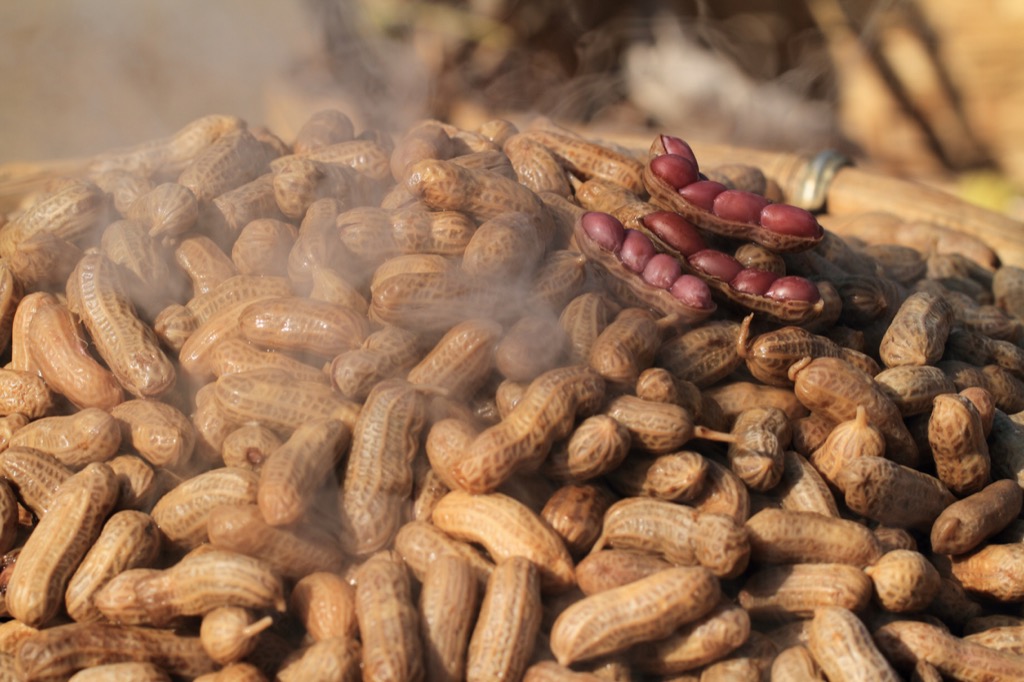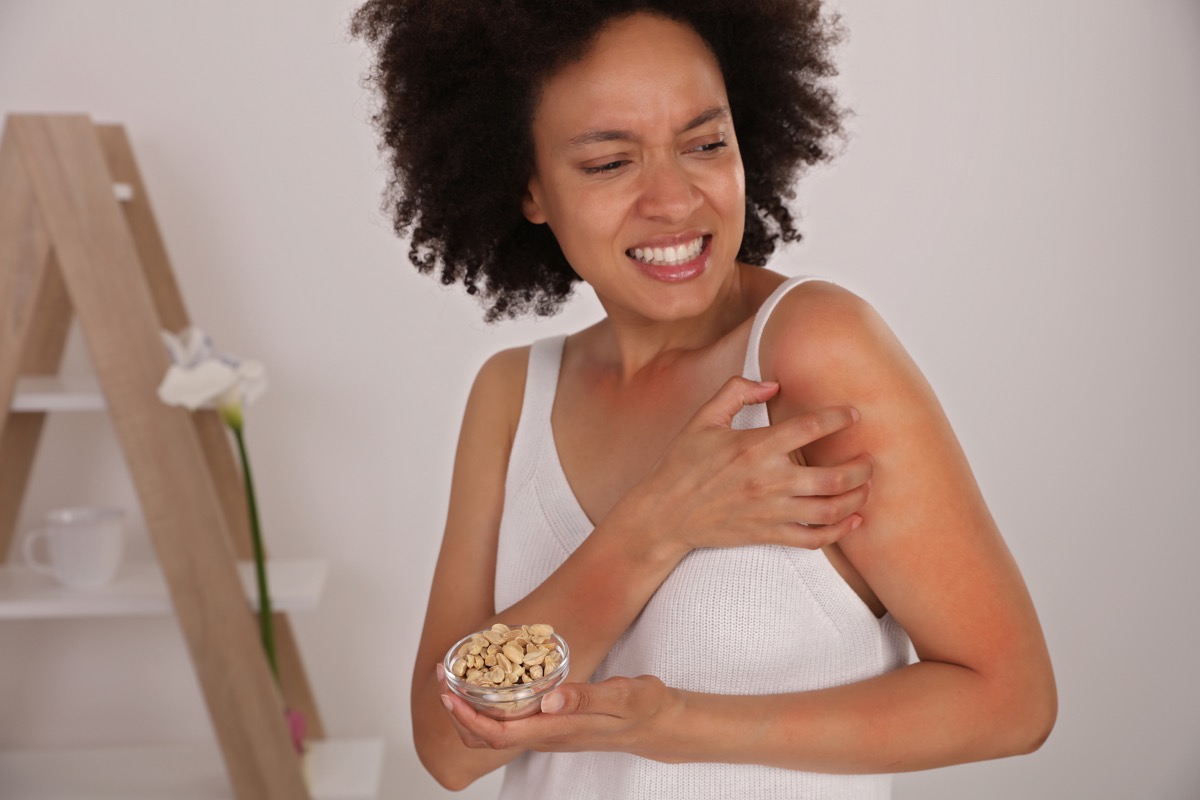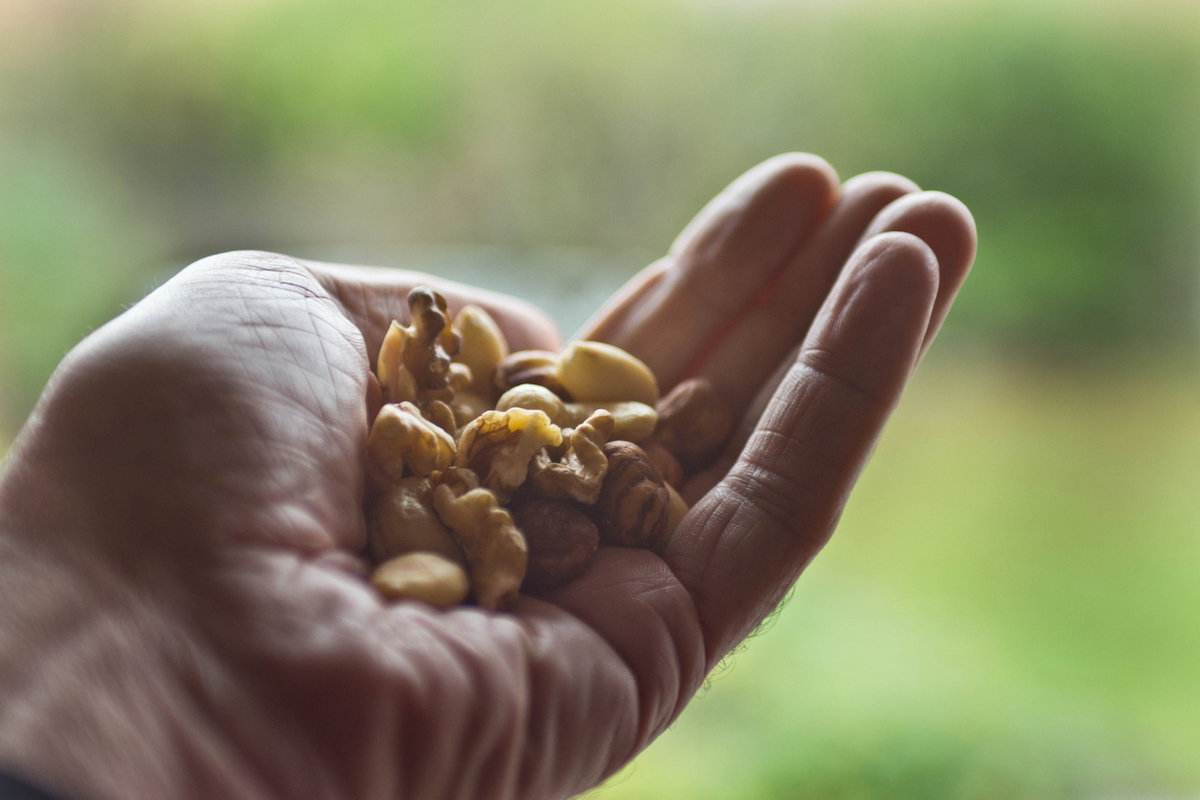For the report, which was published in the journal Food and Chemical Toxicology, researchers at the University of Cincinnati College of Medicine collected data on the peanut dose-response. According to lead author Lynne Haber, PhD, a senior toxicologist at the University of Cincinnati College of Medicine, peanut warnings are usually only helpful for those who need to steer clear of the nut entirely. Read on to learn the exact amount of peanuts that can prompt a reaction in those with mild allergies, and for more on scary reactions, check out If 1 of These 3 Body Parts Starts Swelling Up After Your Vaccine, Call a Doctor. The researchers looked at the reactions 481 patients from various locations across the U.S. had to increasing levels of peanut protein in a controlled setting. They determined the “eliciting dose”—which is the exact amount of peanut that sparked a reaction in the patients—was 0.052 milligrams of peanut protein in one percent of patients allergic to peanuts, while five percent reacted to 0.49 milligrams of peanut protein. In a statement, Haber noted the former is equal to the weight of a single grain of salt, while the latter measures up to a single grain of sugar. “Risk is based on a combination of how inherently hazardous something is, and how much of that substance someone is exposed to,” Haber explained. “The amount of exposure is also important in determining risk. Water is healthy, but if you drink enough of it, it could kill you.” And speaking of the dangers of a certain brand of water, check out If You’re Drinking This Bottled Water, Your Liver May Be in Danger, FDA Says. Sneezing, itchy or watery eyes, stomach cramps, shortness of breath, tingling in the mouth, swelling, lowered blood pressure, and nausea can arise within just minutes of a peanut-sensitive person being exposed to the nut. Better Health Channel explains that as the body responds to an allergen, antibodies are produced and a chemical known as histamine is released, leading to allergic symptoms. “These chemicals can affect different tissues in the body, such as the skin, eyes, nose, airways, intestinal tract, lungs, and blood vessels,” Michigan Medicine notes. “Casual skin contact is less likely to trigger a severe reaction. But casual contact can become a problem if the affected area then touches the eyes, nose or mouth,” according to Food Allergy Research and Education (FARE). If you’re not severely allergic to peanuts, over-the-counter antihistamines could help reduce nut-provoked allergy symptoms, Healthline reports. While people can have a reaction within a few minutes after exposure to peanuts or products containing peanuts, even the most severe type of allergic reaction can take place up to several hours to occur. FARE advises anyone with a peanut allergy to keep an epinephrine auto-injector easily accessible at all times in case of a severe, potentially life-threatening allergic reaction, better known as anaphylaxis. Peanuts can be found in salad dressings, cookies, ice cream, other “nut” butters, cereal and granola, as well as Chinese, Thai, and Mexican cuisine, according to the experts at Healthline. For anyone with an allergy to peanuts, Sydney Local Health District (SLHD) advises you to completely avoid peanut butter and peanut products, prepare foods at home, avoid processed foods that may contain nuts as cross-contamination is possible, and most importantly, read food labels. In addition to carrying an EpiPen that can be administered on the go, people with severe allergies to peanuts should also wear a medical alert bracelet, which can help inform first responders in an emergency situation.ae0fcc31ae342fd3a1346ebb1f342fcb And for more up-to-date health news delivered right to your inbox, sign up for our daily newsletter. While peanuts and tree nuts are most likely to cause a severe allergic reaction, cashews, walnuts, hickory nuts, pecans, almonds, hazelnuts, Brazil nuts, pine nuts, macadamia nuts, and pistachios are other nuts that could trigger an allergic response in people, according to the experts at Better Health Channel. And for more on allergies, check out 9 Ways To Breathe Easier During Allergy Season.



